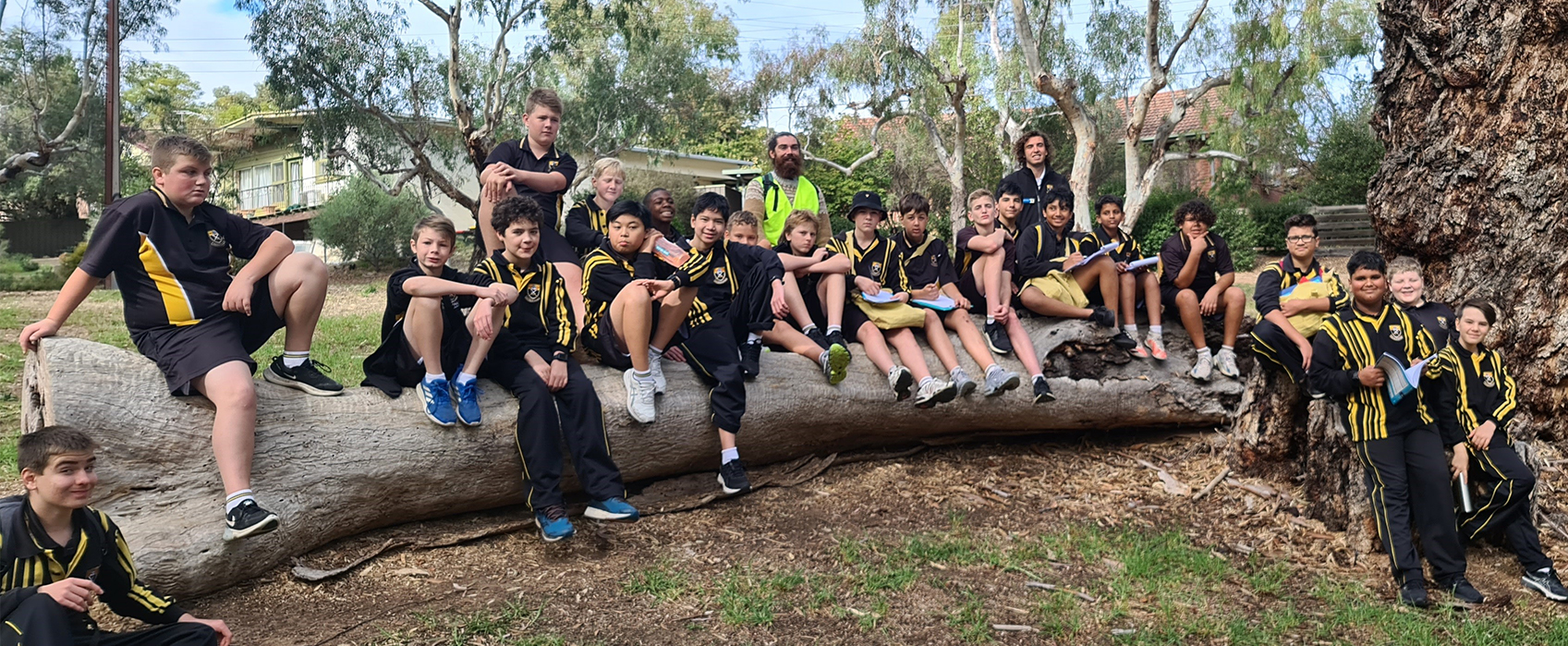
EVERYONE’S WELCOME AT A CATHOLIC SCHOOL.
Discover your local
Catholic school during
Catholic Schools
Open Week
August 4-10



Discover your local
Catholic school during
Catholic Schools
Open Week
August 4-10




For almost two centuries, Catholic Education South Australia has been producing thriving, caring and compassionate people – and there’s more to come
Almost 180 years ago, South Australia’s first Catholic school was started by Bishop Francis Murphy, who sent a husband and wife, Mr and Mrs James, to establish the school in a temporary chapel in Pirie Street, Adelaide. Today, that notion of school as an extension of family remains at the core of Catholic Education South Australia, which since 1844 has taught almost 800,000 students with the help of 250,000 teachers, staff and volunteers.
Also consistent during this time has been the ethos of learning and living the gospel, not least of which is loving God and one’s neighbour.
“We use that today to recognise our young people should not only be thinking about the people in their own schools but those at other schools, those less fortunate, those who have not had the gift of education, those in another country under the reign of tyranny and asking, ‘What can I do about that?’,” says Dr Neil McGoran, director of Catholic Education South Australia (CESA) “I’m proud to say a lot of our staff and students work in homeless shelters, volunteer, raise money and give of their time – that’s part of the tradition that is Catholic schools.”
But it’s not just about the past 177 years in South Australia (or the past 200 years in Australia): Catholic Education is a story that spans the past 2000 years and one that shapes present and future learnings. CESA’s Living Learning Leading Framework encourages young students to become “thriving people, capable learners and leaders for the world God desires” – with new measures introduced to support students both today and for the next 200 years.
“When you build on such a rich legacy, you come to appreciate even more what matters to young people to ensure they do well at school but, more importantly, do well in their lives,” Dr McGoran says. “To that end we have launched a once-a-term Classroom Pulse Check In, to listen to how students feel about the way we’re supporting them. We’ve also developed a regular annual survey for students, families and staff. Noting what works well for young people and responding is important for us.”
Investing in professional development is another commitment to ongoing successful outcomes. “We are regularly monitoring how well we’re bringing to life what we say we do in Catholic Education – supporting teachers around how to be clearer about the learning intentions and the success criteria, and how to bring that to life in the classrooms,” Dr McGoran says.
New schools and the expansion of existing schools are helping CESA respond most effectively to families, including a new community school at Two Wells, a fee-free school at Davoren Park and the first Catholic secondary school in the Riverland. Meanwhile, new campus structures at metropolitan schools allow students to experience being part of a small community while making better use of resources and subject offerings such as sports programs, arts, drama and music. And a review of CESA’s policy and approach to students with disability is focusing on helping young people to feel they belong and succeed academically, socially and spiritually.
“There is a space and a place and an approach for every young person in South Australia whose parents would like them to have a Catholic education,” Dr McGoran says. “Our job for the next 200 years is to ensure that’s the lived experience for all.”
Learn more about Catholic Schools Open Week.
To discover your local Catholic school, visit our School Directory.

St Paul’s College, Gilles Plains has been announced as one of nine prize winners in the inaugural Andy Thomas Space Foundation Schools Challenge.
The Challenge encourages Years 7, 8 or 9 students in South Australian schools to create a project highlighting the importance and potential use of space technology in addressing the United Nations Sustainable Development Goals.
St Pauls was awarded $5,000 to implement their proposed idea of exploring how space technology of vertical farming could help the people of Mangaran, a remote Indonesian village.